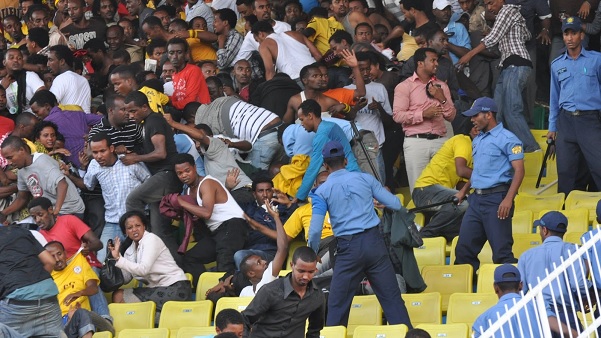
Since November 2015, security forces have arrested and detained tens of thousands of people during protests against government policies in Oromia.
By Felix Horne (Human Rights Watch)
It’s good news that Ethiopia’s government has announced the release of 9,800 people detained for their participation in anti-government protests. But they represent fewer than half of the 24,000 people detained since a countrywide state of emergency began on October 9. And most never should have been arrested. The state of emergency has had catastrophic rights implications for Ethiopians, and the factors that prompted it remain unresolved.
Since November 2015, security forces have arrested and detained tens of thousands of people, often without charge, during protests against government policies in Oromia. Hundreds of protesters have been killed. We have interviewed dozens of people held in short-term detention in military camps, and many described mistreatment and torture in meticulous detail.
The scale of the arrests is overwhelming. Many lives have been lost or forever altered. “Iftu,” a 16-year-old girl from Hararghe in Oromia, described the toll on her family – security forces shot and killed her father during an August protest. Several days after his funeral, two of her brothers were arrested and taken to Tolay military camp, and have not been seen since. Her mother and two other brothers went missing when the military went door to door in November “arresting every young person they could find,” she said. Her uncle cannot walk because of torture he suffered in Ziway prison following protests in Oromia in 2014.
Read more on Human Rights Watch
——
See also:
- Insight: State of Emergency in Ethiopia – Part I
- Insight: State of Emergency in Ethiopia – Part II
- State of Emergency’s Command Post Lifts Two Limitations
- VIDEO: Ethiopia Might Lift State of Emergency Earlier than Planned
- Ethiopia to Release Suspects Arrested under State of Emergency Decree
- Following State of Emergency, EU Calls for an Inclusive Dialogue in Ethiopia
